"Let us perish, but we will save the city! ..."
1969 year. I am five years old. Garrison "Lake" in Ukraine. Hot short summer nights. I fall asleep and wake up to the roar of aircraft engines. Father leaves on flights before dark, and returns late at night. I hardly see him, like most boys and girls of our aviation camp.
Therefore, for me, my father is a jacket with golden captain's stars on blue skylights, which I secretly take from my closet from the closet when she is in the store, and try on in front of the mirror like a coat. Heavy golden circles of medals melodiously call back with each step ...
I stand in front of the mirror and in all the strength of the boyish lungs I pull:
And it was in the service
and in their heart
huge sky, huge sky,
a huge sky - one for two.
Then there was no boy in the country who did not know the words of the song of Oscar Feltsman and Robert Rozhdestvensky. The whole country sang it.
And the whole country bowed their heads before the feat of the crew of the newest Yak-28 interceptor fighter.
Crew
Kapustin Boris Vladislavovich - captain, was born in 1931 in the village of Urupsky of the Otradnensky district of the Krasnodar Territory in the family of a scientist. In 1947 he graduated from a seven-year school in Rostov-on-Don, in 1951 - Rostov Industrial College. In 1951, drafted into the ranks of the Armed Forces, on the proposal of the draft committee, enters the Kirovobad Military aviation School of Pilots named after Khuslyanova.
After graduating from college distributed to the North. Then sent to the Group of Soviet Forces in Germany (GSVG).
Yanov Yury Nikolaevich - senior lieutenant, born in 1931, in Vyazma, Smolensk region, in the family of a railwayman. In 1950, he graduated from Vyazma secondary school N 1, in 1953 - Ryazan Military Automobile School, in 1954 - Ryazan Military School navigators.
After graduation, he was sent to the Group of Soviet Forces in Germany.
Both in 1964 retrained in Novosibirsk to the new Yak-28 fighter, a silvery handsome man, whose swift, almost “Gothic” forms became the personification of the gambling era — the storming of space, supersound, stratosphere. Already ready crew in the group of aircraft flew from Novosibirsk to GSVG to Finov airfield. There, in 40 kilometers from Berlin, was the 668 th Bomber Aviation Regiment of the legendary 132 Bomber Sevastopol Red Banner Aviation Division.
Kapustin - pilot, Yanov - navigator-operator. Both are first-class fighters. Others were not taken here: in the midst of the cold war, the world had not yet moved away from the Caribbean crisis, in Germany there are a half dozen armies of former allies in the anti-Hitler coalition.
Takeoff
On the morning of April 6, the link of captain Boris Kapustin received an order to overtake the new Yak-1966P in Zerbst, to the base of the 28 th Fighter Wing. It was a fabulous car! The first Soviet fighter-interceptor, capable of destroying the enemy at low altitudes, not only on catch-up, but also on a collision course. The chain of interceptors was distilled to Germany from the Union, where they were assembled at the Novosibirsk Aviation Plant.
“On April 3, they unexpectedly landed here in Finovo, although the entire 15 minute flight remained until Zerbst,” recalls Galina Andreyevna Kapustina, the widow of the flight commander. - When Boris came home, he admitted: he barely reached, he jerked the engine.
The planes did not let out from the airfield for three days, the technicians were busy with them. And only 6 April allowed flight to Zerbst. On everything about everything - from taxiing out on the runway to landing - forty minutes. For first-class pilots - an easy walk.
Tugs on high-rise suits are tightened, all zippers are buttoned up, helmets are worn, aircraft techniques, like caring nannies, routinely help pilots to take places in the cockpits, check all connections and connectors, remove covers and plugs. In 15.24, a pair of new, still-smelling lacquers and nitrokrassky interceptors, flooding the aerodrome field with a roar of engines, quickly ran over the runway and soared into the sky.
The flight commander captain Boris Kapustin - lead, captain Vladimir Podberezkin - slave. Navigators on board: in Kapustin - senior lieutenant Yuri Yanov, in Podberezkin captain Nikolai Lobarev.
While the link breaks through low clouds, let us quote the certification that regiment commander Hero of the Soviet Union, Lieutenant Colonel Koshelev gave Kapustin in November 1965 of the year, when he was promoted to the position of deputy squadron commander: -18 and Yak-2L with the Р28АФ12-28 engine. Total flight time - 11 hours. 2 successfully retrained for Yak-300, retraining program was mastered quickly. The attack on the Yak-1285 - 1964 hours. set minimum of weather from small, high altitudes and from trasosphere at supersonic speed. As an instructor prepared day and night with a set minimum of weather. It flies confidently, takes initiative in the air ... "
The navigator Yury Yanov was also brilliantly certified: “He flies on Li-2, Il-28, Yak-28 airplanes. As a navigator prepared for combat with the Lotos system, at low altitudes - with an OPB-16 sight. The total flight time is 1030 hours , on the Yak-28 - 185 hours. For 1965, 125 hours flew over the year, performed 30 bombings with an average 4,07 score. He likes to fly. He is calm and initiative in the air. He is very serious and businesslike ... "
We flew, were friends in heavenly distance,
hand to reach the stars could.
The trouble has risen, as tears to eyes:
once in flight, once in flight
once in flight the motor failed ...
No, thanks
4000 height. A pair of Yak-28, breaking through the dense clouds after take-off, glided in the icy sun penetrated by the dazzling sun over the snow-white clouds. Direction to Zerbst! It was already ten minutes of flight, when the leading Yak suddenly abruptly led to the right.
He began to lose speed and fall.
A short recording remained on the radio tape recording that was preserved in the investigation:
Kapustin - slave:
- Three hundred eighty third, get to the right!
On command, the slave executed the maneuver, bypassing the plane leading to speed and control, and stepped forward. Yak-28 Kapustin immediately fell behind.
After a couple of seconds, Podberezkin asked:
- Three hundred and seventh, I do not see where you?
- Three hundred and eighty-third route on the instructions! I'm coming back! - responded Kapustin.
Podberezkin continued the flight, but after a few seconds, worried for the commander, again asked for the lead:
- ... sixty-seventh, how are you?
Silence.
- Three hundred and seventh, why do not you answer? ..
Slave did not know that the impossible had happened: Kapustin’s aircraft failed one engine, and a few moments later the second one got up. This simply could not be! Yak-28 engines are two independent units, each located on its own plane. As the commission will establish, the cause was a "structurally-manufacturing defect".
Alas, this was not surprising.
Time
The Yak-28, which began to enter the troops in 1960, turned out to be a very capricious device and often refused. The aircraft’s fuselage was not strong enough and deformed when fully loaded, it was impossible to close the cockpit cannon. Therefore, we had to first put the crew on, close the cockpit and only then fill the plane and hang up the ammunition. The take-off was allowed only on the out-of-operation mode of the engines - when the afterburner was switched on, a “raznotag” arose at the take-off, inevitably leading to a catastrophe. For a long time, the flap release system, which developed insufficient force, caused complaints.
The haste with which the Yak-28 was created is the root cause of its accident rate. The root cause of haste is the political situation in Europe, where there was a smell of great war. Vicious circle. End justifies the means...
8-th State Red Banner Air Force Test Institute opposed the adoption of the Yak-28P. But the command of the Air Force Air Force "pushed" the decision to launch it into a series: the 443 interceptor descended from the stocks of the Novosibirsk aircraft factory. Yak-28P was in the ranks for almost thirty-five years, but was never officially adopted by our army.
Nevertheless, the aircraft was respected among aviators. Especially the pilots were impressed with his thrust-to-weight ratio - when flying without armament at an afterburner, the fighter could gain altitude almost vertically. The danger of flying on it was considered something natural. So to say, the costs of the profession.
Such was the time, such were the people ...
"Jump!"
Silence stunned. The plane began to sharply lose altitude.
Do not panic!
Psychology of the pilot - until the last fight for the life of a winged car, save, land! And thereby preserve invaluable evidence of what happened. A malfunction will be revealed on the ground, telegrams will fly to all parts of the country - check the problem node. And this saved lives of pilots.
Therefore, there is no time to think about your own.
Kapustin using the autonomous launch system and oxygen feed tried to start the engines - did not work! Another attempt - failure!
Towards the "Yak" inexorably crawling deceptively soft white blanket of clouds. Below it is still invisible earth.
3000 height. "Yak" fell into the clouds, in the cockpit it instantly became dark, as in the twilight. Decision time. Need to jump.
For the SPU (aircraft intercom. - Auth.) Kapustin gives the command to the navigator:
- Yura, jump!
But to leave the plane at this moment - to further complicate the position of the pilot. The difference between the interceptor and the bomber is that in the Yak-28 two people are sitting in the same cab one after the other, while the ejection unit a common cab glazing flies off. Hurricane air flow will fall on Kapustin, undermining the ejection seat squibs will disrupt the alignment of the aircraft, push it down ...
Yanov instantly makes a decision:
- Commander, I'm with you! Jump at the same time!
"Yak" emerged from the clouds. In the cockpit second shock. Below them, Berlin has opened wide ... from the horizon to the horizon ...
Feat
Half a century ago, there were no modern navigation systems that determine the position of the aircraft with an accuracy of one meter. Flying above the clouds on the course in the absence of landmarks and a strong side wind "blew" the interceptor for several kilometers to the side, on the city.
2000 height.
And the 16-tonne, with full fuel tanks, the car falls on busy streets.
Far ahead the mirror of the Stösensee lake flashed. Before him is a green, scrubby wasteland. This is the last chance - to reach him and try to sit down. Both pilots from the last forces, up to the stop, pull the control knobs on themselves, taking the plane out of the peak.
And it would be necessary to jump - the flight did not come out.
But an empty plane will crash into the city.
It will pass without leaving a living mark
and thousands of lives, and thousands of lives,
and thousands of lives will be interrupted then.
Thousands of bewildered Berliners, throwing their heads back, watched the silver plane with red stars falling out of the clouds on the planes, leaving behind them a train of dark smoke, in complete silence suddenly making a hill, picking up the maximum speed. And from the top of the hill a gentle turn goes towards the Berlin outskirts.
From the story of the West Berlin worker V. Schrader:
"I was working on the 25-floor building. In 15 hours 45 minutes an airplane took off from the gloomy sky. I saw it at a height of about 1,5 thousands of meters. The car started to fall, then rose, fell again and rose again. And so three times. tried to level the plane ... "
The roofs of houses flashed right under the wing. Kapustin again commanded:
- Yura, jump!
The 60-s aircraft were installed ejection seats of the second generation, which had limitations on the height of the ejection. On the Yak-28, this limit was 150 meters. Janov still had a chance to survive. But then just no chance of escape will not have Kapustin.
Yanov answered again:
- Commander, I'm staying!
Flashing blocks and can not jump.
Let us reach the forest, friends decided.
Away from the city we will take death.
Let us perish, let us perish,
may we perish, but save the city.
The earth is approaching, filling the horizon. The last houses disappear under the fuselage - here it is, a saving wasteland. And suddenly among the greenery - a forest of crosses and roofs of crypts. Cemetery! You can not sit down! Now - only on the surface of the lake that has opened in front of it. But before him is a high dam ...
The last words of Kapustin are on the tape:
- Calmly, Yura, sit down ...
Somehow, in an incredible way, they jumped over the dam, almost hitting a truck driving along it. But to level the plane, to raise the nose for landing - there was neither speed, nor time. Vzdybiv fountain of water, "Yak" huge spear dug into the murky depths.
Less than 20 minutes have passed since departure. Since the beginning of the accident - about 30 seconds.
Honor and dishonor
Galina Andreevna Kapustina recalls:
“Boris didn’t want to leave the house that day! He couldn’t say goodbye to me: he embraced, he kissed. He stepped over the threshold, then came back again.“ Probably tired, it’s time to take a leave, ”he said. dinner was boiling for the son I was waiting for from school. "Well, go,” I told Boris. He nodded and left. And my throat was tight with a premonition. I rushed to the window. All five crews went to the airfield Boris was still standing near the house, shifting his weight from one foot to the other, as if he felt: he was going towards death.
I learned about the death of Boris only on the second day. They were afraid to talk about it, I found out last. But I already felt: something bad had happened. The first-grader son, returning from school, lay down on the sofa, turned away from the wall. I saw the wives of officers crying when they gathered together. And when the deputy commander, party organizer and regiment commander entered the apartment, I understood everything. She only asked: "Is he alive?" The commander shook his head. And I lost consciousness. "
And then it was the time of the vultures.
The disaster area was the English sector of West Berlin. Within 15 minutes, the head of the British military mission, Brigadier General David Wilson, arrived here. British military police cordoned off the lake. All appeals of the Soviet command to gain access to the site of the fall were rejected under the pretext of settling bureaucratic procedures.
At night, a team of military divers began dismantling fighter equipment. Western specialists knew that a unique radar "Eagle-D" was installed on it ...
The British quickly got the bodies of the pilots, but continued to assure the Soviet representative, General Bulanov, that they were still trying to do this. Defying the unwritten code of officer honor, which until the last seconds of his life were true Soviet pilots.
Only at dawn of the next day the bodies of Kapustin and Yanov were demonstratively laid on the raft. But only closer to the night transferred to the Soviet command. The British pulled in time because technicians from the Royal Aviation Institute in Farnborough studied dismantled equipment.
But there were touching human manifestations of grief. Thousands of citizens came to parting with the pilots in the eastern sector of Berlin. The British command sent a unit of Scottish shooters for the guard of honor. And they were standing next to Soviet soldiers, soldiers of the National People’s Army of the GDR, activists of the Union of Free German Youth. This was perhaps the only case that brought together communities that were incompatible in those cold times.
Later, a memorial plaque was installed at the crash site. In Eberswalde and seven other German cities, memorable signs appeared ...
The Military Council of the 24 Air Army 16 of April 1966 presented the award of the Order of the Red Banner to Captain Kapustin B.V. (posthumously) and Senior Lieutenant Yanova Yu.N. (posthumously) for courage and self-sacrifice in the name of saving the lives of the inhabitants of West Berlin. Soon the Decree of the Supreme Soviet of the USSR was published.
Arrow aircraft rushed from the sky.
And the birch forest startled from the explosion ...
Not soon grassy overgrown with grass.
And the city thought, and the city thought,
And the city thought: the exercises are coming.
Sky for two
Yuri Yanov was buried at home, in Vyazma, not far from the places where the first cosmonaut Yuri Alekseevich Gagarin was born.
Boris Kapustin was given the last honors in Rostov-on-Don, where his parents lived at the time. The widow had to bury her father-in-law that day. Vladislav Alexandrovich Kapustin could not bear grief, he loved his son very much ...
“He then suffered two strokes, lay at home without getting up,” recalls Galina Andreevna Kapustina. - He was afraid to talk about what happened. But he still found out. He said only: "Once Boris has left, and I have nothing to do here." And he died less than a day. Father and son were buried nearby on the same day - April 12 ...
Fifty years later, I stand at the Vyazma cemetery in front of a modest obelisk of red granite. The stingy inscription under the photo: "Senior Lieutenant Pilot Yanov Yury Nikolaevich, died heroically in the line of duty." Quiet around. It smells of spring. And I suddenly find myself humming softly, like in childhood:
In the tomb lie in the midst of silence
great guys great country.
Light and solemnly looks at them
huge sky, huge sky,
huge sky one for two.
CALL Edete drinker
"In Voronezh, the navigator's wife came up to the stage ..."
- How to you, Edita Stanislavovna, did this song come?
- Oscar Feltsman wrote the music to the poems of Robert Rozhdestvensky, who was in Berlin and learned there about the feats of the pilots. In 1967, Feltsman suggested that I be the first to perform this song. I sing it still, and it seems to me that it does not lose its relevance. Such songs are not born every day.
- That's why the viewers take it so warmly.
- Always well received. With a bang! In 1968, at the “Great Sky” youth and students festival in Sofia, she received several awards - a gold medal and first place in a political song contest, a gold medal for performance and poetry, a silver medal for music ...
- Can you remember the most memorable performance?
- In Voronezh, a woman came up to the stage, and the whole room stood up, applauding. It was the wife of the navigator Yuri Yanov. The same thing happened in Rostov, where the family of Boris Kapustin lived.
- And today's youth knows who the song is about?
- I think it is unlikely ... Yes, the young and I do not know. The grandson of Stas is asked who Edita Pieha is. Although I am 58 years old.
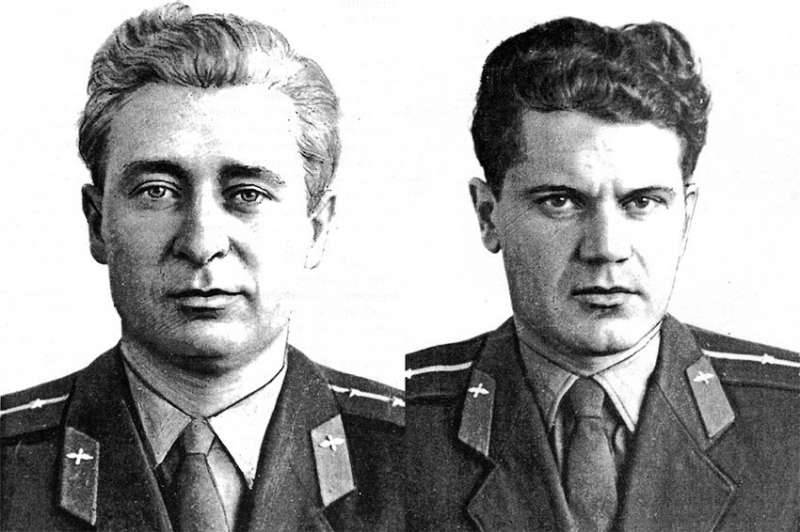
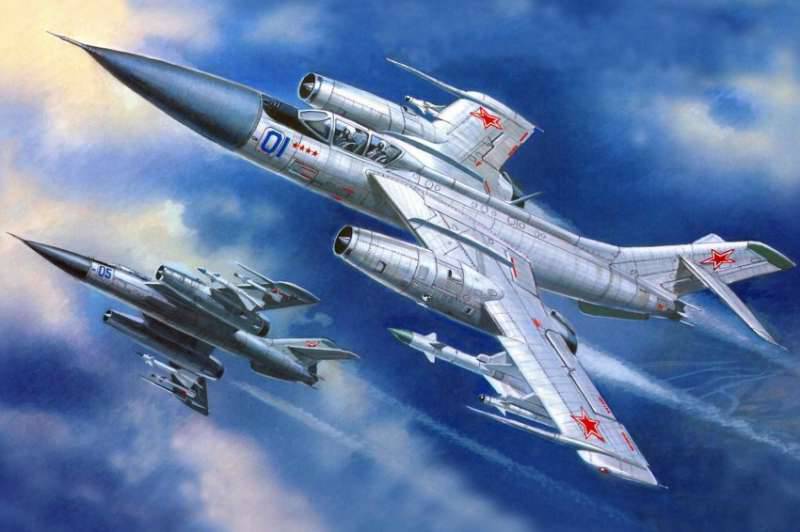
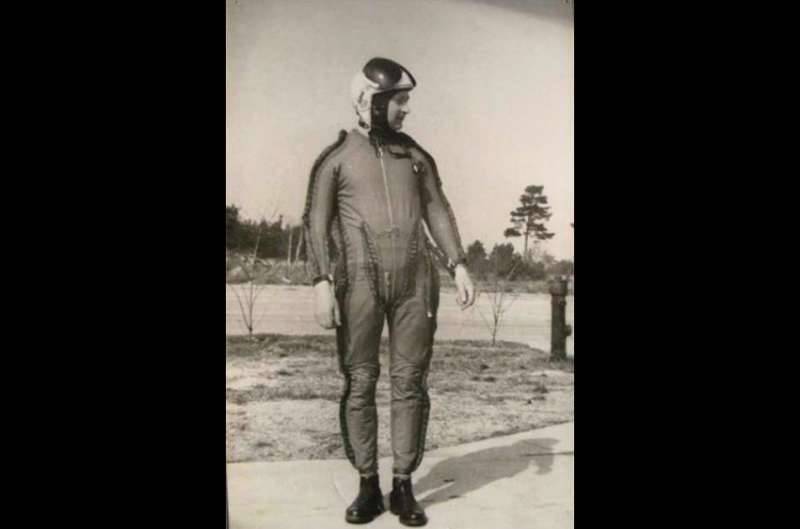
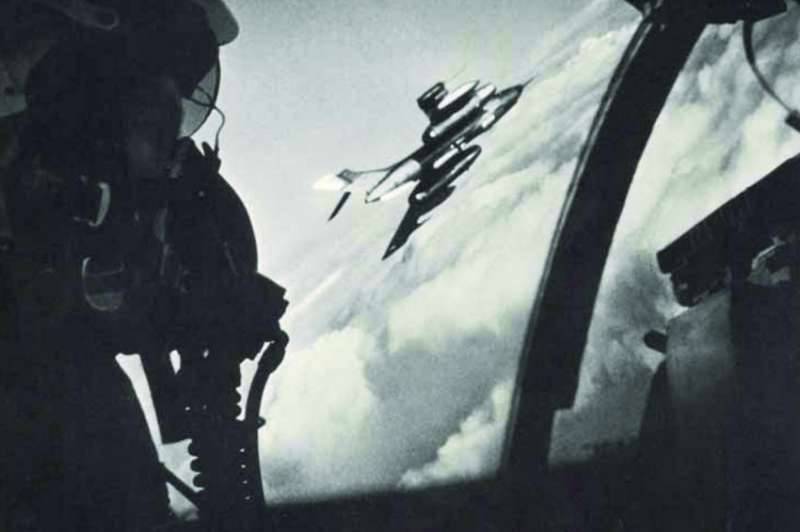
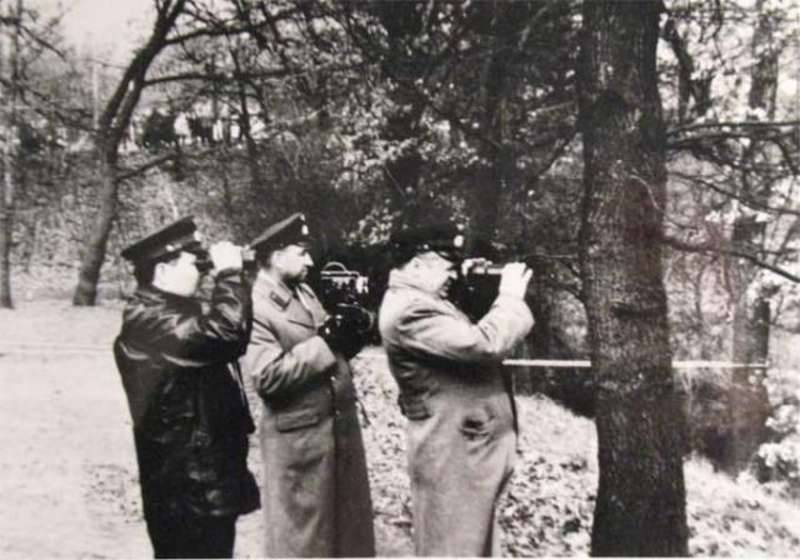
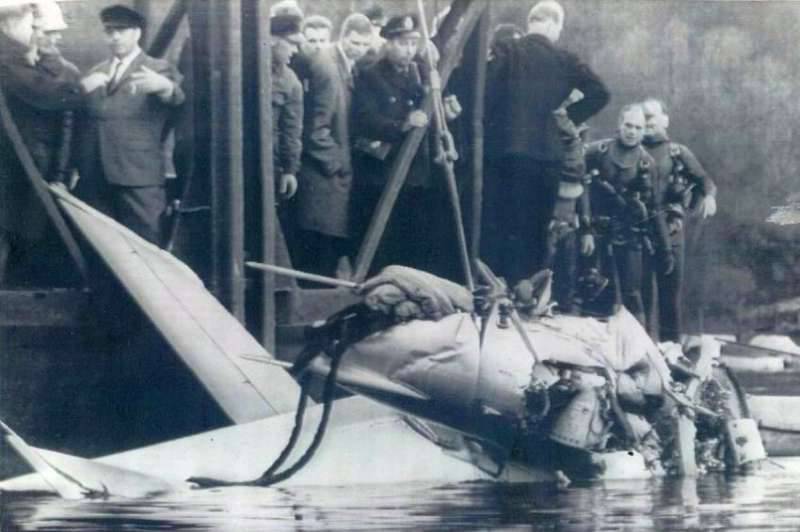
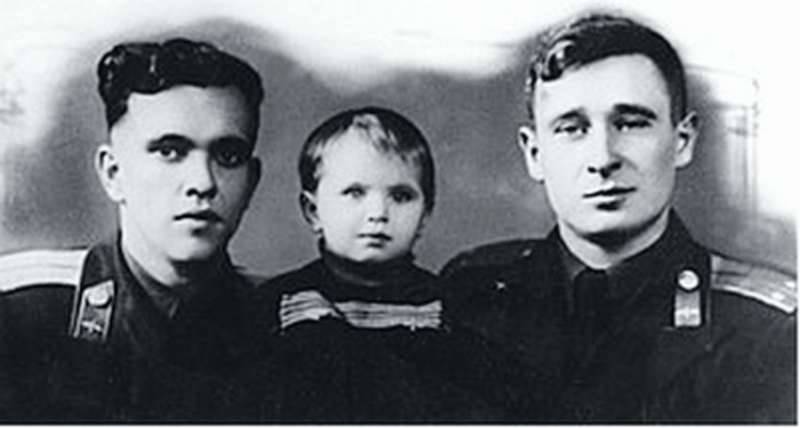
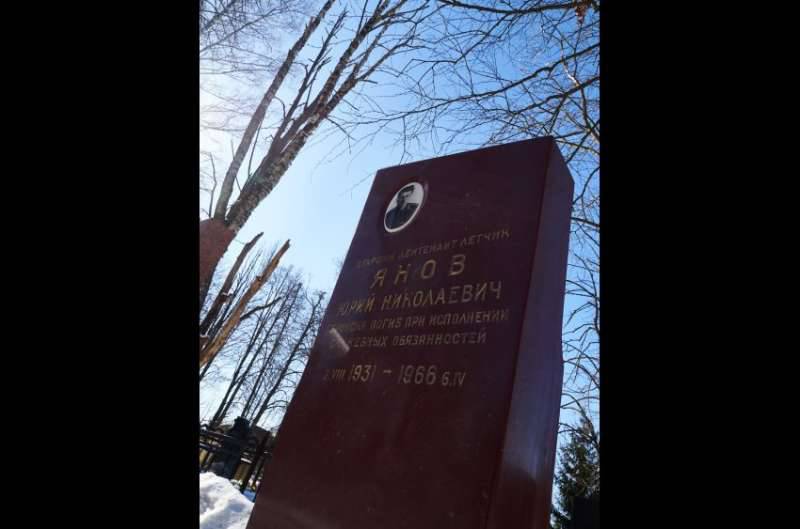
Information